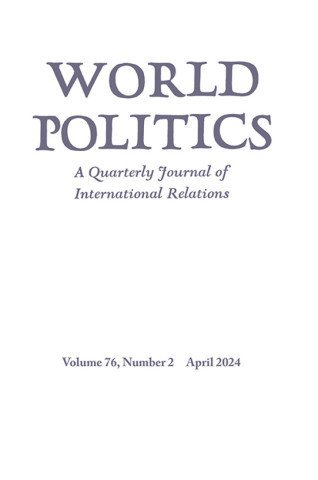政治道歉对民意的影响
IF 2.5
1区 社会学
Q1 INTERNATIONAL RELATIONS
引用次数: 15
摘要
摘要道歉外交承诺缓解外国公众的历史不满,但在实践中似乎引发了国内的反弹,引发了人们对其有效性的质疑。本文提出了一个理论,即政治道歉如何影响国内外公众对道歉政府的认可。作者通过在日本和美国进行的大规模调查实验来测试其影响。在调查中,作者提出了关于二战不满的小插曲,并随机化了政府道歉的性质。他们发现,道歉,无论是作为承认错误行为的声明,还是作为悔恨的表达,都能提高接受国的认可度。但在道歉状态下,具有强烈等级群体倾向的个人——表现为民族主义、社会主导取向和保守主义——以及那些不认为接受者是重要战略伙伴的人,可能会遭到强烈反对。这一微观层面的证据揭示了领导人如何在改善国外支持和冒着国内反弹风险之间面临关键的权衡,这对外交沟通和过渡时期司法的研究具有启示意义。本文章由计算机程序翻译,如有差异,请以英文原文为准。
The Impact of Political Apologies on Public Opinion
ABSTRACT Apology diplomacy promises to assuage historical grievances held by foreign publics, yet in practice appears to ignite domestic backlash, raising questions about its efficacy. This article develops a theory of how political apologies affect public approval of an apologizing government across domestic and foreign contexts. The authors test its implications using large-scale survey experiments in Japan and the United States. In the surveys, the authors present vignettes about World War II grievances and randomize the nature of a government apology. They find that apology-making, both as statements acknowledging wrongdoing and as expressions of remorse, boosts approval in the recipient state. But in the apologizing state, backlash is likely among individuals with strong hierarchical group dispositions—manifested as nationalism, social-dominance orientation, and conservatism—and among those who do not consider the recipient a strategically important partner. This microlevel evidence reveals how leaders face a crucial trade-off between improving support abroad and risking backlash at home, with implications for the study of diplomatic communication and transitional justice.
求助全文
通过发布文献求助,成功后即可免费获取论文全文。
去求助
来源期刊

World Politics
Multiple-
CiteScore
8.40
自引率
0.00%
发文量
24
期刊介绍:
World Politics, founded in 1948, is an internationally renowned quarterly journal of political science published in both print and online versions. Open to contributions by scholars, World Politics invites submission of research articles that make theoretical and empirical contributions to the literature, review articles, and research notes bearing on problems in international relations and comparative politics. The journal does not publish articles on current affairs, policy pieces, or narratives of a journalistic nature. Articles submitted for consideration are unsolicited, except for review articles, which are usually commissioned. Published for the Princeton Institute for International and Regional Affairs
 求助内容:
求助内容: 应助结果提醒方式:
应助结果提醒方式:


